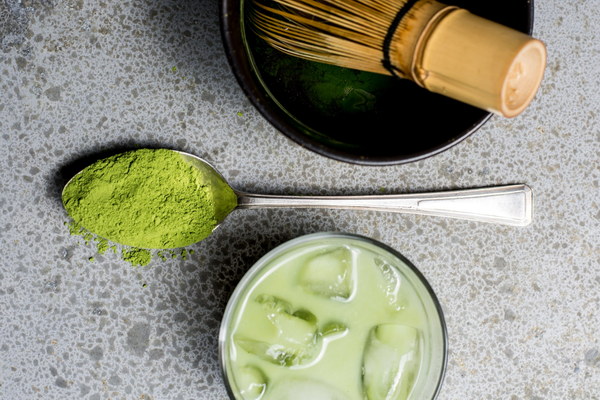How to Drink Coffee for Liver Health Tips for a Safe and Beneficial Brew
Introduction:

Coffee, a beloved morning ritual for many, has been a topic of debate when it comes to its impact on liver health. While coffee is known for its numerous health benefits, it's essential to consume it correctly to ensure it supports liver function rather than causing harm. In this article, we will explore how to drink coffee for liver health, providing you with valuable tips to make your brew a safe and beneficial experience.
1. Choose the Right Coffee:
The type of coffee you choose can significantly impact your liver health. Opt for organic, low-caffeine, or decaf coffee to minimize the risk of negative effects on your liver. Additionally, consider using high-quality, single-origin coffee beans that have been processed without harmful chemicals.
1.1 Avoid Adding Harmful Additives:
Sweeteners like high fructose corn syrup and artificial sweeteners can be harmful to the liver. Instead, use natural sweeteners like honey, maple syrup, or stevia to sweeten your coffee. Also, avoid adding creamer, as it can be high in calories and unhealthy fats.
2. Moderation is Key:
Moderation is crucial when it comes to coffee consumption, especially for individuals with liver conditions. Aim to limit your daily intake to one to two cups of coffee. Excessive caffeine intake can lead to liver damage, particularly in individuals with pre-existing liver conditions.
2.1 Listen to Your Body:
Pay attention to how your body responds to caffeine. If you experience symptoms like anxiety, heart palpitations, or gastrointestinal issues, it may be a sign that you are consuming too much coffee. Adjust your intake accordingly.
3. Timing is Everything:
The timing of your coffee consumption can impact your liver health. Drinking coffee on an empty stomach can increase the risk of stomach acid reflux, which can irritate the liver. Instead, have a light meal or snack before enjoying your coffee.
3.1 Morning Ritual:
Establishing a morning coffee ritual can help regulate your caffeine intake and promote liver health. For instance, having a cup of coffee with a healthy breakfast, such as oatmeal or avocado toast, can provide a balanced start to your day.
4. Hydration is Important:
Staying hydrated is crucial for maintaining liver health, and coffee can actually aid in this process. The diuretic properties of coffee can help flush out toxins from your body, but it's essential to drink plenty of water throughout the day to counteract any potential dehydration.
4.1 Water and Coffee:
Pair your coffee with water to ensure adequate hydration. Aim to drink at least eight glasses of water per day, and consider adding a slice of lemon or cucumber to your water for added flavor and health benefits.
5. Mindful Brewing:
The way you brew your coffee can impact its liver-friendly properties. Here are some tips to consider:
5.1 Use Filtered Water:
Using filtered water can help reduce the presence of harmful minerals and contaminants that may be absorbed by the coffee grounds during brewing.
5.2 Avoid Burnt Coffee:
Overheated coffee can produce harmful compounds that may be harmful to the liver. Adjust the brewing temperature and time to avoid burnt coffee.
5.3 Use High-Quality Coffee Beans:
Invest in high-quality, fresh coffee beans to ensure a better-tasting and potentially healthier cup of coffee.
Conclusion:
Drinking coffee can be a part of a liver-healthy lifestyle when consumed correctly. By choosing the right type of coffee, practicing moderation, staying hydrated, and being mindful of your brewing process, you can enjoy your morning ritual while supporting your liver health. Remember, always consult with a healthcare professional before making significant changes to your diet or lifestyle.









